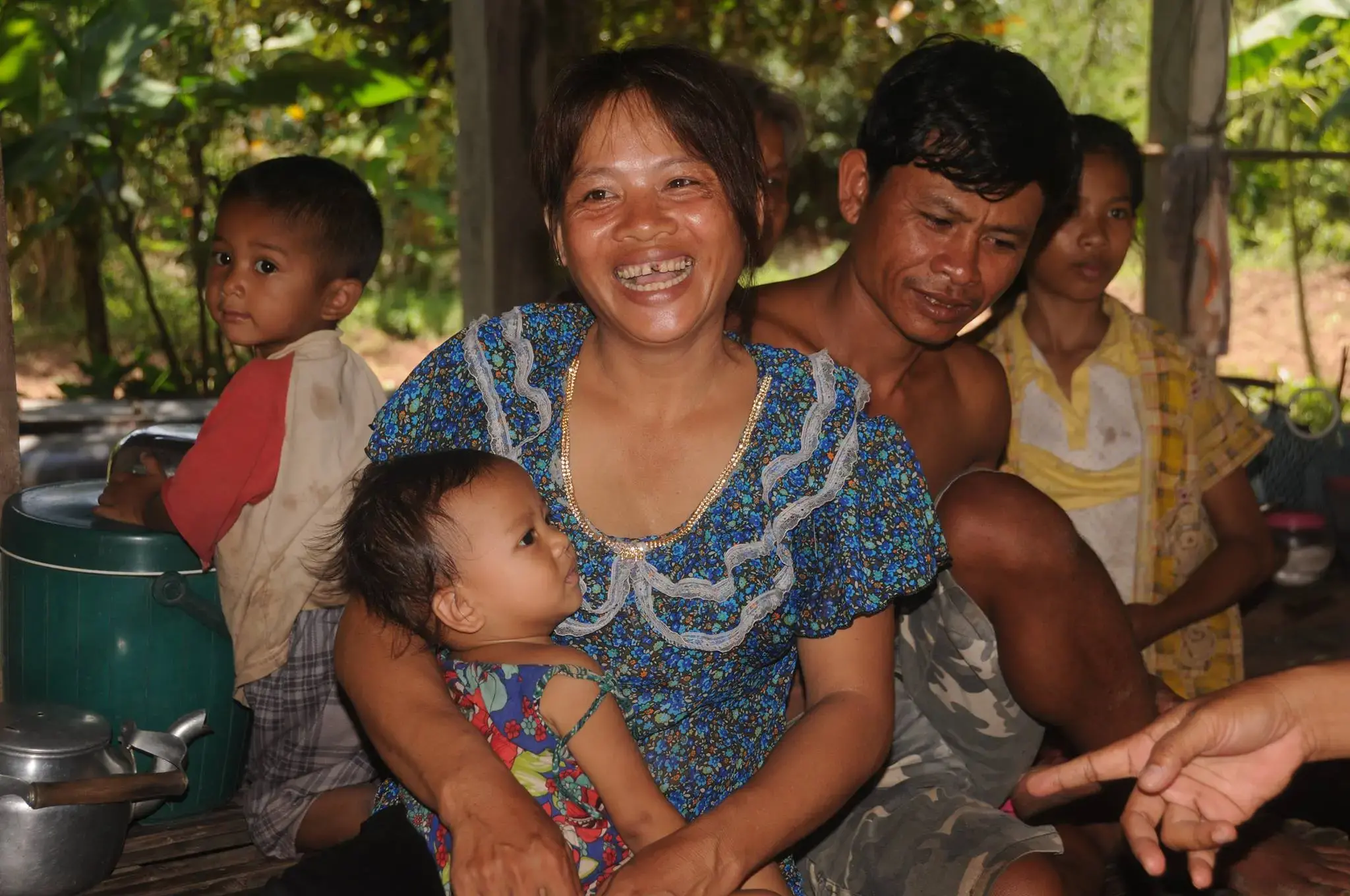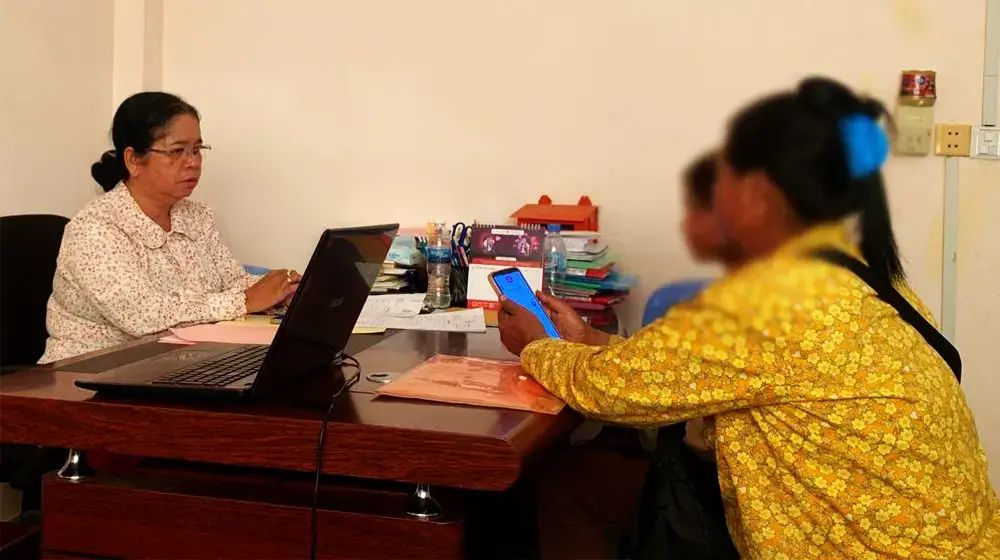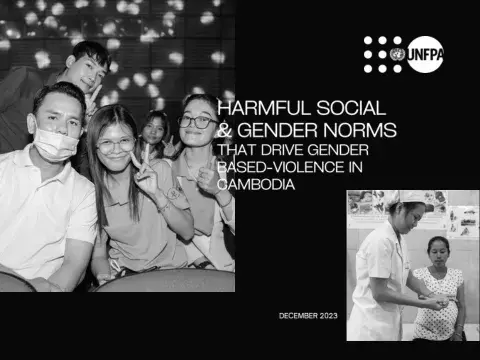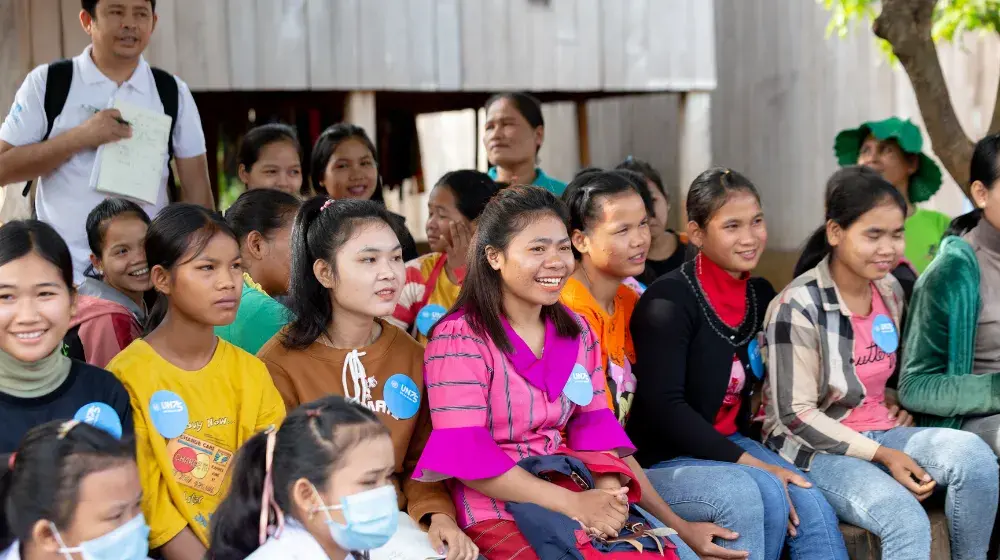Gender-based violence
In a culture with unequal power relations between men and women, gender-based violence is common, especially among vulnerable groups (eg migrant garment factory workers). One in five women aged 15 to 49 has experienced physical violence since the age of 15. Domestic violence is also a major concern: while violence against women may be considered culturally unacceptable, domestic violence is considered justifiable.
UNFPA partners with the Government to develop policies on prevention and has successfully advocated for the inclusion of violence against women data in the 2014 Cambodia Demographic and Health Survey (a national data collection exercise). On a community level, UNFPA supports local initiatives that provide shelter, legal, psychosocial and medical support to survivors of violence.
Engaging men and boys
It is crucial for men and boys to be involved in working towards achieving gender equality and stopping gender-based violence. In Cambodia, 59.1% of ever-married women who have experienced physical violence reported their husbands/partners as the perpetrators (CDHS 2014). Similarly, 64% of sexual violence perpetrators are noted to be current husbands/partners (CDHS 2014).
UNFPA works with men and boys to help transform social norms that justify gender inequality and raise awareness among men to become role models in preventing violence in their families and communities. The nationwide Good Men Campaign, for example, was a social behavioural change campaign that encouraged men to question gender norms and to recognize the value of women in the society.
Gender equality
In Cambodia, gender norms remain heavily rooted in society, creating inequality between men and women and depriving women of their basic rights. Empowering girls to exercise their rights is critical to reducing poverty and advancing development. In Cambodia today, there are still fewer girls than boys who complete school. The level of education often correlates to a woman’s power to be able to exercise her reproductive rights (eg the right to decide the number and spacing of her children, when to get married and when to have children).
UNFPA advocates for women’s rights, raises awareness on the prevention of violence against women and supports initiatives that empower and enable women to lead healthy lives.






